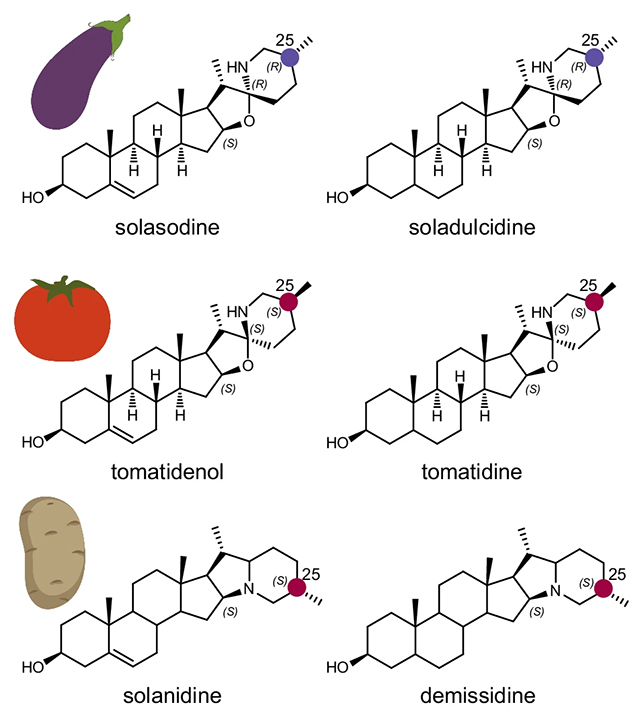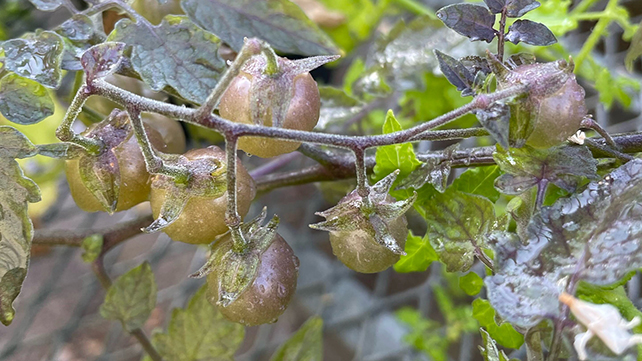In an unexpected discovery, researchers have found that wild tomatoes in the Galápagos Islands seem to be evolving in reverse. This fascinating phenomenon, previously thought to be rare, suggests that evolution isn’t always a straightforward process. The finding, which challenges conventional wisdom, could lead to exciting breakthroughs in genetic research.
Tomatoes Turning Back Time on the Galápagos
A team of scientists from the University of California, Riverside (UC Riverside) and the Weizmann Institute of Science in Israel have uncovered a surprising case of evolutionary reversal in wild tomatoes. This study, published in Nature Communications, focused on two tomato species, Solanum cheesmaniae and Solanum galapagense, both native to the Galápagos Islands. Researchers observed that these plants, particularly those from the western islands, were reverting to ancestral traits that had been lost millions of years ago.
The study revealed that certain wild tomatoes had begun producing alkaloids—chemicals used by plants for defense against predators—that were remarkably similar to those found in the tomato’s ancient relatives, like eggplants. What’s truly fascinating is that these alkaloids are of a much older form, suggesting a regression in the genetic makeup of the plants.


The Mystery of the Vanishing Alkaloid
Through the analysis of 56 tomato samples from across the Galápagos, researchers found a significant difference in the types of alkaloids present in plants from the eastern and western islands. While tomatoes from the eastern islands produced alkaloids similar to those found in cultivated tomatoes, those from the west, where the islands are younger and more barren, produced an ancient version of the chemicals.
These alkaloids are toxic to herbivores, offering the plants a form of protection. The older version of the alkaloid found in the western islands closely resembles the one found in the tomato’s distant relatives, dating back millions of years. By analyzing the specific genes responsible for alkaloid production, the scientists pinpointed a single enzyme as being crucial in this genetic shift. A change in just a few amino acids in this enzyme was enough to trigger the production of the ancient alkaloid form.


Is Evolution Really Just a One-Way Street?
While evolutionary theory typically suggests species adapt over time to better suit their environment, this new finding calls that assumption into question. The researchers refer to this phenomenon as “genetic atavism,” where a species reverts to expressing an ancestral trait that was previously lost. Although such occurrences have been observed in controlled experiments, like in chickens growing teeth, this is one of the first times it has been documented in wild plants.
The fact that the western Galápagos islands—less than half a million years old—are home to these reverted tomatoes raises intriguing questions about the speed and nature of evolutionary changes. The study suggests that environmental pressures, such as the barren conditions of these younger islands, may have triggered this genetic reversal.
Genetic Engineering: What This Discovery Could Mean for Crops
The implications of this discovery extend beyond the realm of pure science. Understanding how evolution can “turn back the clock” opens up possibilities for precise genetic engineering. Scientists hope to apply these insights to modify plant chemistry in a controlled way, improving crop resistance to pests or creating less toxic produce.
“This research is one step toward understanding how nature makes these shifts, which could help us design better pest resistance, or even create less toxic produce,” said molecular biochemist Adam Jozwiak of UC Riverside, who led the study.
This discovery could also help in creating new medicines, taking advantage of nature’s ability to adjust genetic traits on a molecular level. However, the full potential of this research remains to be seen as scientists continue to explore how reverse evolution could influence agriculture and genetic engineering.
Source link


